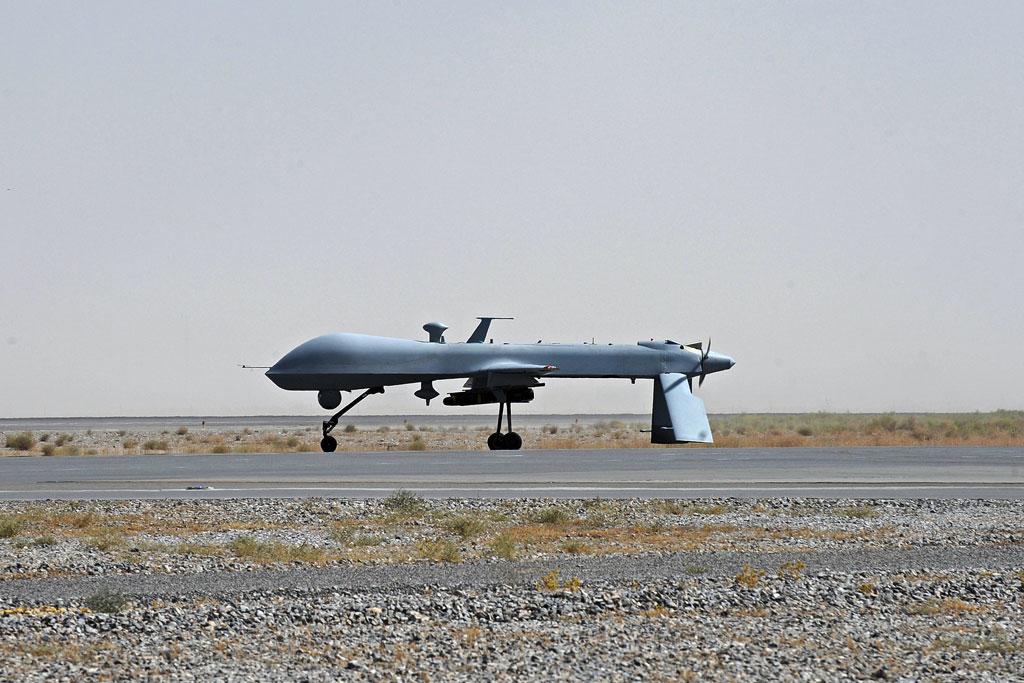Kidnapped Pakistani anti-drone activist reappears, says he was tortured
In this file picture taken on on June 13, 2010, a US Predator unmanned drone armed with a missile stands on the tarmac of Kandahar military airport.
A Pakistani anti-drone activist kidnapped from his home last week was tortured and interrogated before being dumped blindfolded on the outskirts of the capital early on Friday morning, his lawyer said.
Activist Kareem Khan was blindfolded and interrogated in two different locations, his lawyer Shahzad Akbar said, and tied up and beaten on the soles of his feet. At first his interrogators wore police uniforms and later civilian clothes, he said.
Khan's brother and son were both killed in a drone strike in 2009. He was suing the Central Intelligence Agency (CIA) and the Pakistani government over the deaths in Pakistani court.
The drone program has long been a sore point in relations between Pakistan and the United States. Pakistan publicly denounces drone strikes but many suspect it is complicit, pointing out Islamabad has done nothing to halt the strikes.
"He was questioned about so many people he had no idea about. He was also questioned about drone victims by name," Akbar said. Police were not immediately available for comment.
"He was told not to go near media when he was released. If you speak with media, they said, we will come back for you."
Akbar said Khan was taken from his home on February 5 by around a dozen men in police uniforms who bundled him into a police vehicle in front of his wife, children and neighbors. He was shaken after his ordeal but had no visible marks of torture.
"We plan to get him examined by a doctor the moment we get him out of Pakistan," he said, adding both were due to fly out of Pakistan later on Friday on a long-planned trip to talk with European lawmakers about drones.
After each drone strike, Pakistan officials have publicly accused their US ally of infringing Pakistani sovereignty.
However, former military ruler Pervez Musharraf has acknowledged he permitted drone strikes. Many Pakistanis believe the government is complicit in their use but reluctant to publicly say so out of fear of a backlash.
The United States prizes drones for their accuracy in killing al-Qaida and Taliban militants and says they cause minimal civilian casualties.
But accurate information is hard to come by. The Pakistani military forbids foreign journalists from going to the tribal areas along the Afghan border unaccompanied. The government does not release reliable statistics.
The Taliban also often cordon off the sites of strikes.
The Bureau of Investigative Journalism tracks drone strikes through media reports and estimates between 2,537 and 3,646 Pakistanis died in the strikes between 2004 to 2013.
(Editing by Tom Heneghan)
We want to hear your feedback so we can keep improving our website, theworld.org. Please fill out this quick survey and let us know your thoughts (your answers will be anonymous). Thanks for your time!
